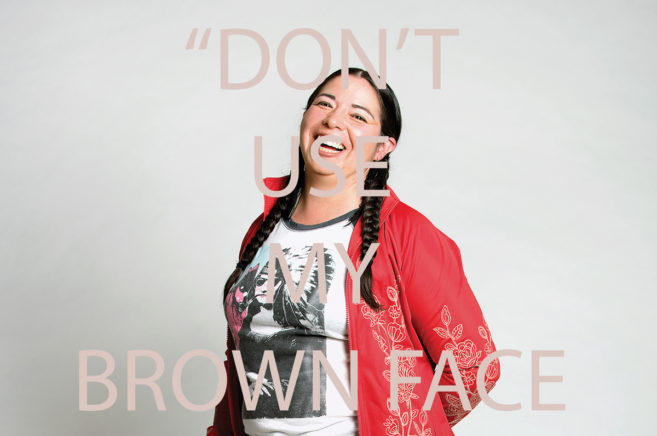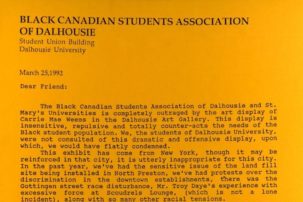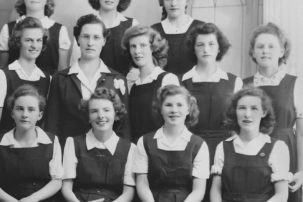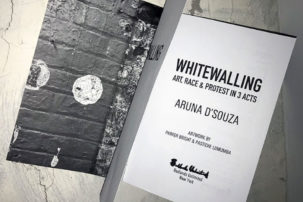Bon Jovi’s “Slippery When Wet.” Sonic Youth’s Goo. “Welcome to the Jungle” by Guns and Roses.
The double entendres came fast and furious when Montreal artist Dayna McLeod asked her Facebook friends what music they would like to play to her uterus.
“It’s like shooting fish in a barrel,” McLeod says of the bad-pun potential her latest project, the Uterine Concert Hall, has wrought.
Described online as “about 6.5 to 12.5 cm” long and “2.1 to 3.5 cm” in diameter, with a “flexible and expandable” stage that is “closed for renovations approximately once a month for 4 to 6 days,” the Uterine Concert Hall is due to have its grand opening this Thursday, July 28, in a performance by McLeod at Montreal’s Darling Foundry.
Here, in a phone interview, McLeod talks about vaginal soundchecks, the unexpected effects of heavy bass, and her dream uterus concert.
Leah Sandals: Why open a concert hall in a uterus? Or a concert hall in your uterus, specifically?
Dayna McLeod: I’ve been using my body in performance works for the last two decades. And there’s a lot of things I’ve been thinking about lately.
As a woman who is now over 40, I thought the question of “Do you want to have kids?” would be over by now. But I still haven’t escaped the question. Now it has just changed to “Oh, didn’t you want to have kids?”
I’m also aware that women’s bodies, whether pregnant or not, are treated as public property, and the technologies around pregnancy, from what I understand, can increase that sense of public ownership.
For instance, there are speakers pregnant women can attach to the outside of their bodies in order to talk with the fetus, and play music for it.
And, in January of this year, something started turning up in my Facebook feed which irritated the crap out of me—it was about a company in Spain that developed a speaker that could be inserted [into the vagina], to get that much closer to your fetus.
So I have been thinking about how incredibly invasive these technologies are.
And while I have never been pregnant, and I am not a mother, I have been seeing all this stress put on women with questions like, “Should a mother have a job? Is she good enough? Is she ever going to be the best that she can be?”
I’m also a woman who doesn’t want children, who never wanted children, and to be constantly defined by maternality anyway is definitely problematic.
So I was out with some friends, and we were talking about all this, and I offhandedly said, “What about my uterus? Doesn’t my uterus deserve some music? If you were to talk to my uterus, what would you say?”
The shape of the uterus—that classic diagram with the handlebar-shaped fallopian tubes—really lends itself to a concert hall. It is the shape of a concert hall—it’s just a lot smaller than a concert hall.
LS: So the Uterine Concert Hall is set to make its big debut at the Darling Foundry this Thursday, July 28. How will it work, in practice?
DM: I see a big part of the piece, at this point, as being about exclusion. While giving the external viewer access to my body, I’m really situating my uterus as the audience.
The mise en scène of the piece is: two friends of mine, Jackie Gallant and Nikki Forrest, are each going to DJ a set for my uterus.
They will be set up at a DJ table at Darling Foundry, and there will be another table there where I will be basically splayed out, with a cable that will go from the DJ booth, quite literally, into me.
External viewers are invited to eavesdrop.
I will also have some stethoscopes so you will be able to listen through my body that way, too.
LS: How has the advance testing gone so far?
DM: So far, my tests at home are good.
It’s weird… it’s kind of joyful…I haven’t really sorted out my feelings yet about being able to listen through my flesh, if that makes sense.
There is a bit of an echo, and it is faint. But I think people will be able to hear something, and hopefully not forget that they are quite literally listening to a concert through my body.
Something else that came up in the tests is that bass is particularly, shall we say, stimulating. So I told the DJs I can accommodate bass, but I don’t know if our friendship is at that level right now.
LS: What music have you played for your uterus so far?
DM: I’m a fan of Patsy Cline, so the first song I played was “Come On In (And Make Yourself at Home).” “Fuck the Pain Away” by Peaches was another testing song.
I also put out a call on Facebook: “What would you want to play to my uterus?” “Echo Beach” [by Martha and the Muffins] was by far my favourite suggestion.
Dance music works really well—subtle sounds seem to get a little bit lost in there.
LS: What are your plans for the Uterine Concert Hall after this Thursday’s debut?
DM: I’d like to continue this project into the fall, with a related exhibition at the Darling Foundry in November.
The challenge of this project is to figure out a visual component. What I would love is to find a partner to work with who has an ultrasound machine for visualization. I’m open to any medical centres or feminist doctors out there who might be interested. I’d like viewers to be able to come and give me an ultrasound during a concert, and project the resulting image—that would make the artwork more external to my body, as opposed to it being external only for the viewer.
Also on the visual front, given the temporality of performance and the professionalization of art practice, is becoming a bit obsessed with documentation. So I created a website and Twitter feed as part of that project.
I’m hoping some bands may not read the website too closely, and might actually try to book a show.
LS: What artistic precedents were on your mind as you developed this project?
DM: Annie Sprinkle, with her Public Cervix Announcement. Carolee Schneemann, with Interior Scroll. And Jess Dobkin’s work.
LS: What else would you like people to know about the Uterine Concert Hall?
DM: Well, my ultimate dream concert would be a reunion of Lilith Fair. Sarah MacLachlan might be up for it, right? I am trying to make it happen by next June. It really begs for a ’90s-girl-power reunion concert.
Dayna McLeod’s Uterine Concert Hall debuts Thursday, July 28, at 7:30 p.m. at Montreal’s Darling Foundry as part of the Filiations performance series. Nikki Forrest and Jackie Gallant will DJ. To make a song request, email booking@uterineconcerthall.com.
This interview has been edited and condensed.

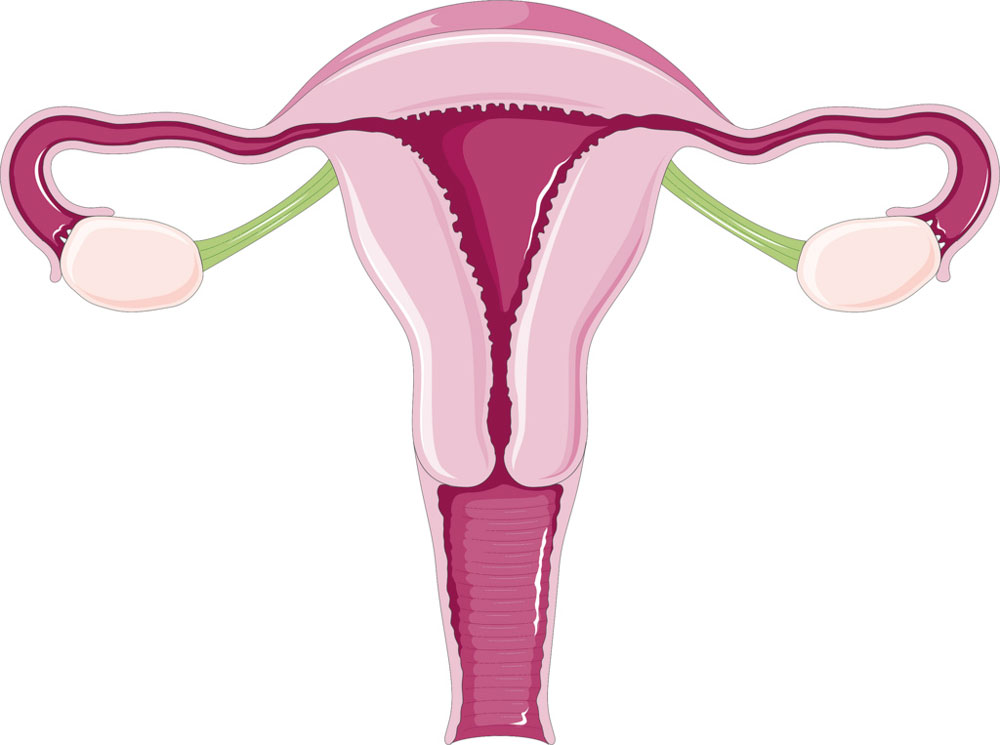 Montreal artist Dayna McLeod says her idea for a Uterine Concert Hall was sparked by several related thoughts around social control, technology and women's bodies. Image: Servier Medical Art via Flickr. Creative Commons License.
Montreal artist Dayna McLeod says her idea for a Uterine Concert Hall was sparked by several related thoughts around social control, technology and women's bodies. Image: Servier Medical Art via Flickr. Creative Commons License.
